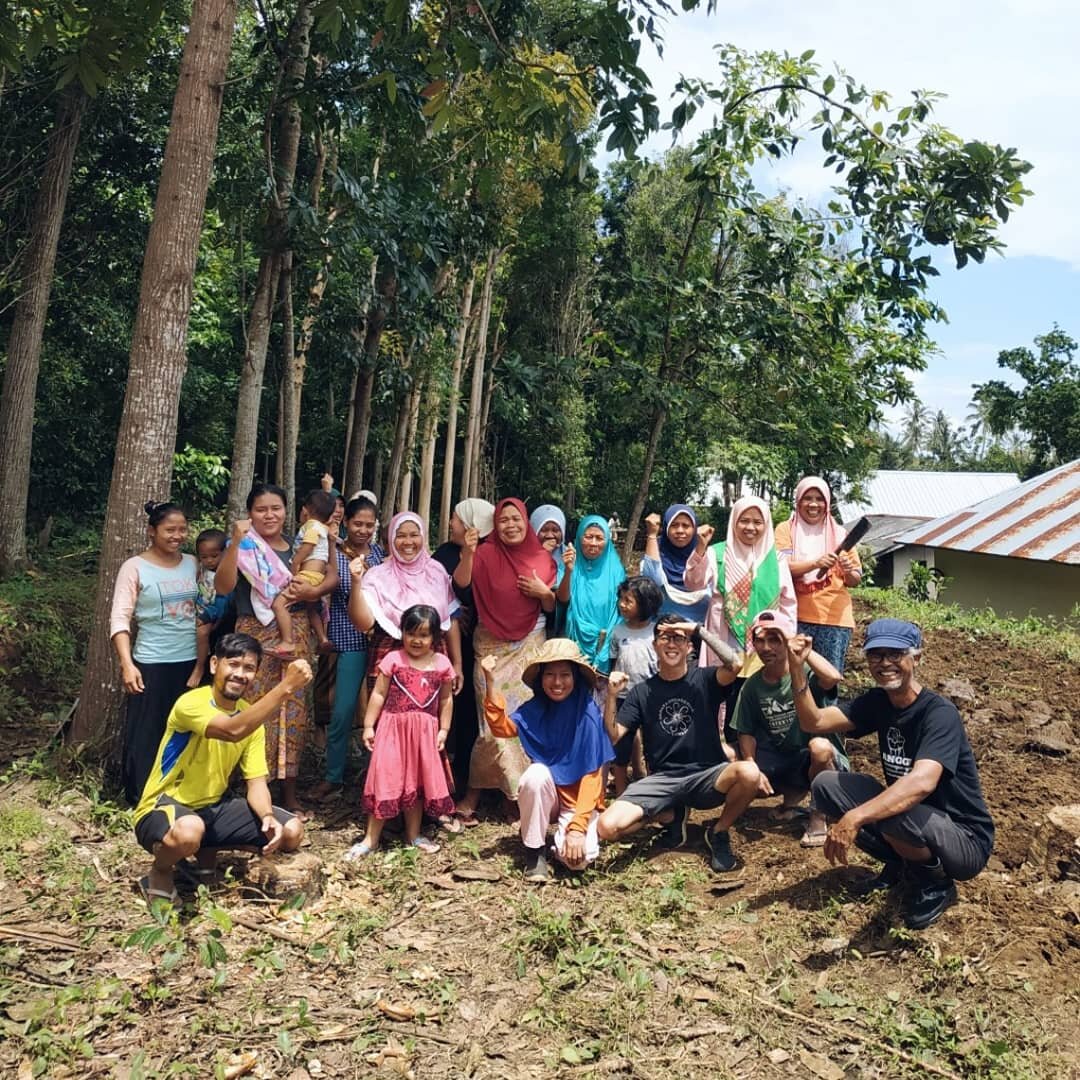A FAMILY VISION
A little bit more about us
« Saifana » is the first letter of Anne-Sophie’s and Tikno’s 7 children (Safira, Atias, Ili, Fanny, Adrian, Namori and Amina).
A FAMILY VISION
« Saifana » is the first letter of Anne-Sophie’s and Tikno’s 7 children (Safira, Atias, Ili, Fanny, Adrian, Namori and Amina).
We discovered Lombok during our honeymoon in 1993 and fell in love with the atmosphere, the people, the culture. In 2013, after living and moving around the globe for many years, we wanted to find the authentic Lombok that we visited 20 years ago, and this is exactly what we got here, in Bayan.
In 2017, we made the big move. We packed our bags and left the city to live full time at the Farm, convinced that something amazing was awaiting us !
From the busy city life to the quiet secluded village, we had to learn to live in harmony with nature, to consume differently, to make ourselves part of the local community.
We are proud of our journey and what Saifana has become. Today, we are happy to host visitors from all around the world in a place where they could feel at home, far from their own. Three of our seven children live at the farm and we have an amazing team of super women working full-time with us.
promote regenerative agriculture
support local economic development
create a fair-trade market which assures a fair income to the farmers
promote sustainable living and a harmonious cohabitation between the people and nature
learning and practice exchange
community empowerment
transparency and fair-trade
environnement and sustainability

Saifana used to be an abandoned cashew tree orchard and most of the land comprises of rocks and very little top soil. Each year, a long drought arrives at the end of April, and stays all the way through to December. Having almost no access to water, many people have asked us "Why on Earth would you want to farm this land?". With no background in farming or gardening whatsoever, we started to read books on permaculture, agroecology and regenerative farming. We quickly understood that the first step to regenerative farming is to build a healthy soil. A soil full of microorganisms, that absorbs water and nutrients is essential to growing tasty organic crops and fight against drought.
From there the journey began, we gathered logs, branches, twigs, leaves from the farm and its surroundings to create permanent layered beds that would eventually transform into soil rich in organic matter and life. Over the years, as material decomposed the beds have become more productive. Each year, the soil structure changes and its capacity to hold water grows, which allows us to farm further into the seasonal drought. Today, we grow a variety of seasonal crops like okra, tomatoes, eggplant, chili, cucumber, beans as well as many leafy greens that we used directly in our farm to table meals.
The food forest is a perennial system in which more than 80% of the plants and trees are edible. It is inspired by the forest in the sense that plants and trees all grow harmoniously together at a high density. Every layer of the system is occupied by a specific crop. On top trees are grown at different heights, coconut trees are emergents, mango trees as a high canopy, longan as a lower canopy and below that shrubs and roots that can thrive with less sunlight. At Saifana, our newly planted food forest is slowly developing and we are learning which plants are best suited for our region.

We started setting up Community Gardens at the begging of the pandemic. The North of Lombok depends mainly on tourism, and with the borders closing, a lot of people lost their jobs.
Food sovereignty. We first started setting up gardens so villagers could grow and provide fresh and healthy food to their families. We also wanted to explore a barter system with a common Lumbung (granary) where the villagers can exchange their harvests or goods.
Community resilience. One of the main goal was to create connections around gardening. Community gardens provide opportunities for constructive activities, relationship and interpersonal skill development.
Sustainable farming. We introduced natural farming, a practice where gardening means working with nature, not against it.

In North Lombok, Tanah Inaq supports women and girls facing underaged marriage, domestic violence and limited access to education. Saifana Organic Farm is partnering with Tanah Inaq Foundation to train women on sustainable farming practices and product transformation for added economic value. Organic gardens are developed in elementary schools to provide healthy and nutritious food to the children.
Every week we clean, we educate, we change!
Trash Hero is a velounteer-led movement that drives changes within communities around the world. In 2019, we created Trash Hero Bayan so we could organise weekly clean-ups in our area, educate the kids to be more aware of their environment and prevent plastic waste.
All the data from our cleanups is collected and sent to Break Free From Plastic (BFFP), an NGO network that realizes global brand audits to identify the top global polluters. They use their data to push for systemic change in the production and disposal of single use plastics.
If you want to help make a difference, come and join us on Sunday for our weekly clean-up! Follow us on Facebook or Instagram for more info about our next cleanup.

Saifana Organic Farm is one of the core members of Lombok Eco Market (LEM). LEM was created to provide a central collective for the many talented eco-artisans working in Lombok. Based on six guiding principles – Women’s Empowerment, Conscious Shopping, Circular Economy, Earth-Friendly, Local Roots & Pop-Up – the LEM invites them to sell their products in various events around the island. Today, there are nearly 40 active companies under the LEM umbrella!
Browse through the various LEFM makers here and contact them through WA, Instagram or Facebook.
